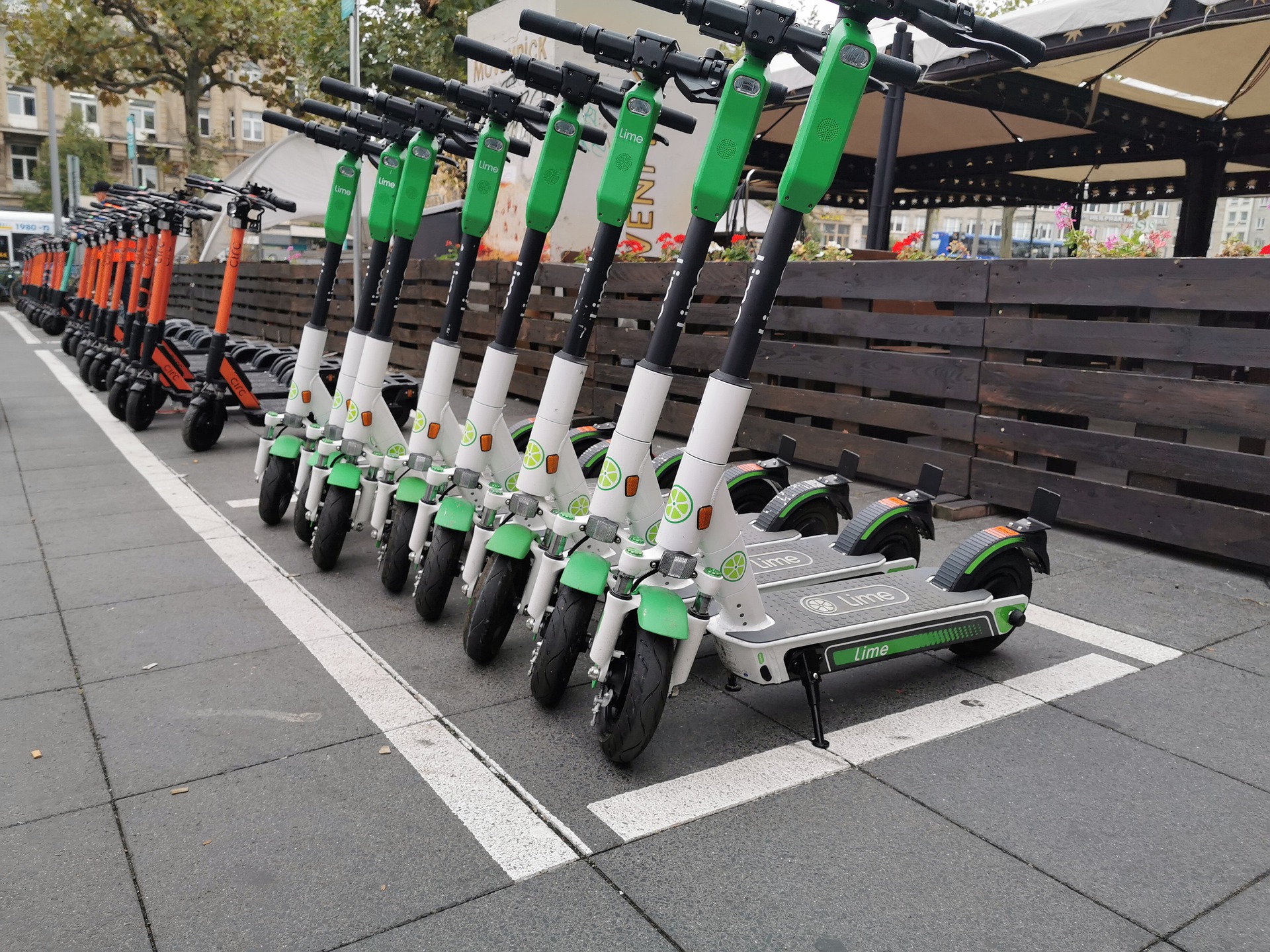Electric Scooters
Electric scooters are popping up in cities across America, but they have been popular in Europe for years. We are at the beginning of this new form of personal transportation, which creates a few questions regarding risk, liability, and insurance coverage.
Scooter usage Facts (Forbes)
- Only 4.4 % of riders wear helmets
- 80% of accidents are results of falling
- Head trauma is the most common type of injury
Most cities do not have regulations or rules regarding scooters because they do not qualify as motor vehicles. Some cities require a driver’s license and helmet, but these are mostly on the honor system. Users can rent a scooter then leave it anywhere they want, even in your front yard or in front of your business.
Insurance companies are busy trying to figure out who is liable in the event a scooter injures someone. What if the scooter rider injures someone while on the job, will the injuries be covered under workers’ compensation? Will liability be the responsibility of the employer’s insurer? Many insurance policies may not address scooters specifically. Depending on the circumstances, some electric scooter-related injuries may be covered, while others may not.
Right now, most insurers will not cover scooter crashes. Auto insurers also will not cover scooters, as they are not defined as an automobile. Scooter companies have strict waivers that are included in the rental agreement limiting any liability to the rental companies. One company offers a $1,000,000 liability policy, but all claims would be subject to extensive investigations.
Most legal experts agree that riders will bear the legal liability arising from accidents because of the terms to which the rider agrees to when downloading the app. The laws, the courts, and the insurance industry are often slow to respond to new technology, and this may be the case with electric scooters. Relatively few laws specific to electric scooters have been passed.
We recommend you contact your insurance agent to discuss if your personal insurance provides any coverage, or if you need to add coverage to your program.
Drones and Insurance
The Federal Aviation Administration (FAA) released guidelines on the use of drones for commercial and personal use. Many businesses are considering, or actually using, drones as part of their business. Just a few drone applications include real-estate sales and appraisals, making commercials, construction projects, and even security.
Most drone users have little or no aviation experience, so even if you follow the regulations and the laws, you might experience a pilot error or unplanned equipment failure. With some models tipping the scales of up to 55 pounds, rogue drones can pose a significant threat to people and property—and to your personal liability. That is why it is smart to add an insurance review to your pre-flight checklist.
Here is a link to the FAA rules
Here Are Some Things to Know
- Drones must weigh less than 55 pounds, and operation must be less than 400 feet above the ground.
- Drones must be in your line of sight at all times.
- The operation must also be within 30 minutes of sunrise or sunset.
- Operators need to obtain a pilot certificate with the U.S. Airspace by passing an aeronautical test.
Will My Insurance Cover Drone Operations?
Each insurance policy is different. But generally, your homeowner’s insurance may not cover your liability if your drone causes a covered loss. It always pays to check with your agent.
Driverless Cars
Every year auto manufacturers come out with new technology that improves the operation of their vehicles.
There is no question that self-driving cars are in our future, and there are many questions that come with this kind of technology. A transport scholar at the University of Minnesota believes that by 2030, every car on the road will be driverless. According to another expert source, the Insurance Institute for Highway Safety, there will be 3.5 million self-driving vehicles on U.S. roads by 2025, and 4.5 million by 2030.
Most states have already enacted legislation or executive orders around legal issues involving self-driving cars.
Key Issues around Self-Driving Cars
- Legal liability. If an accident occurs, there will undoubtedly be litigation involving the vehicle’s owner and the manufacturer.
- There may be a no-fault system put into place.
- There may be fewer accidents, but the cost of repairs will go up due to the technology within vehicles.
- With a greater need for shared vehicles—especially in large cities, there will also be the need to understand who is legally responsible for injuries, and assurance that there will be enough insurance to cover these injuries.
- Will you be able to obtain excess insurance for ridesharing cars if needed? Each state has different minimum insurance requirements, so if you are going to be traveling across state lines, it will be important to understand your risks.
- The degree of driver control over a vehicle could also affect the division of liability between driver and manufacturer.
The question is no longer will auto insurance change—it will definitely change, the real question is when and how it will change. That is why it will be important to have a professional insurance agent to help guide you through all the legal issues. There are currently some self-driving vehicles on the market. It will be important for you to seek the advice of a professional insurance agent to help educate yourself on your risks.
Since 1992, Wayne McCormick has provided homeowners insurance coverage at competitive rates for homeowners and renters in San Diego County and Southern California.
Let us help you save even more by combining your home and auto insurance. We can also help you can save hundreds on your life insurance, umbrella insurance, motorcycle insurance, boat / watercraft insurance, RV / travel trailer insurance, commercial insurance and more. We even offer surety bonds!







Leave A Comment